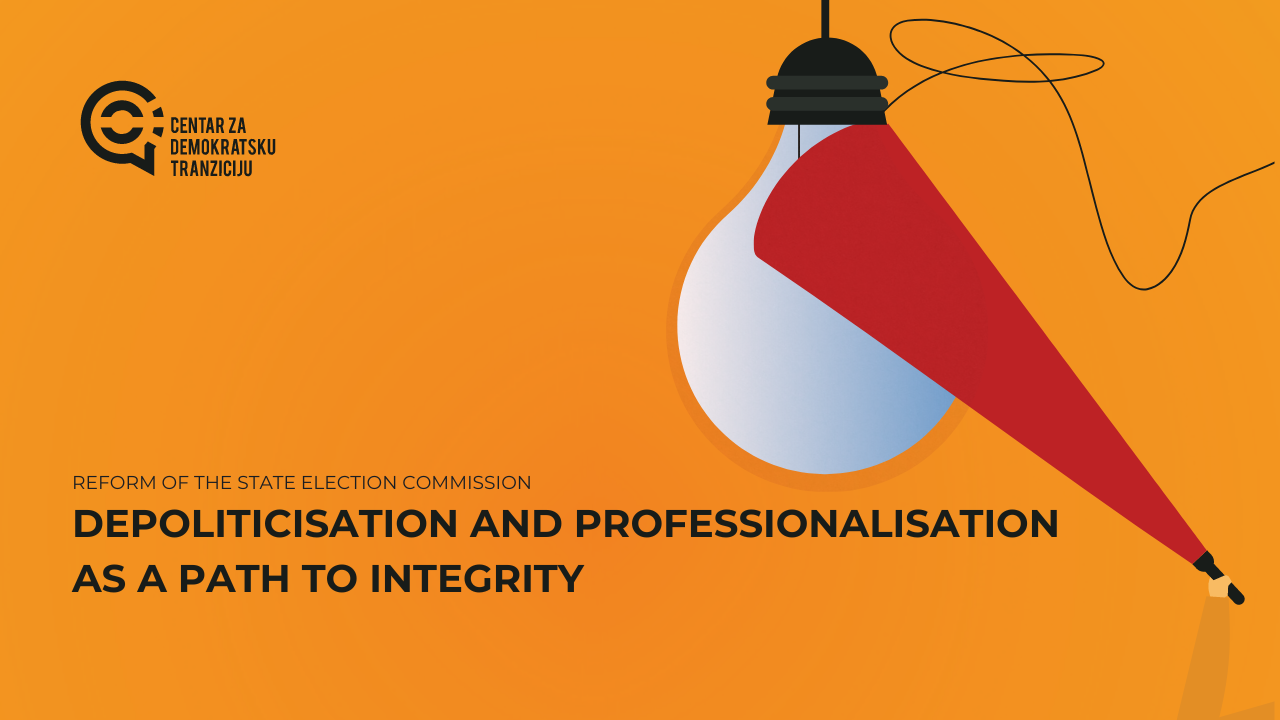In Western European democracies with strong institutions and a history of impartiality, it is not uncommon for a separate branch of the executive power to organise elections, which implies the existence of government oversight over the electoral process.
However, this model cannot guarantee impartiality in all contexts – hence a growing trend of insistence on the independence of election commissions, especially in new and transitional democracies. Such an approach highlights commitment to democratic principles and international standards of democratic elections.
However, for many countries, the question of how to ensure independent electoral administration is an open one. It is often the case that although they formally appear to be independent from the executive power, the composition of these bodies is such that they lean towards the governing, political majority. Additionally, in politically polarised societies such as Montenegrin, even if the relevant legislation allows for representation of all political parties, true political independence is not guaranteed.
Montenegro is one such example, where formal balanced representation of the Parliamentary majority and opposition in the State Election Commission (SEC) and other bodies involved in elections did not lead to professionalism and neutrality. Contrarily, we witnessed the SEC making decisions along political lines from one election to another, to the detriment of impartial and legal administration of the electoral process.
The actions of the State Election Commission in the 2023 presidential elections will remain as a marker of undue political influence of the election administration on the election outcomes. Specifically, party representatives in the SEC worked with institutions of a foreign state (the Republic of Serbia), which are also under political control, to create ad hoc procedures for one-time political use, resulting in removal of a presidential candidate from the electoral race. The specific candidate was given the highest ratings by public opinion polls, which worked in favour of the other two lead candidates.
This case is a vivid illustration of what it looks like when the balance of representation between the Parliamentary majority and the opposition, conceived as a mechanism for effective control over the electoral process, turns into its antithesis – a form of harmonious cooperation against a common political enemy. The above is a strong enough argument for the need and urgency of legislative reform, which would result in complete depoliticisation and professionalisation of the State Election Commission, as well as subsequent gradual professionalisation of the election administration at lower levels.
The upcoming electoral reform should undertake these activities as a priority; failing to implement them would mean that the reform cannot be considered fundamental or comprehensive. In a truly inclusive process, comparative approaches and models must be considered from the perspective of universally accepted standards on democratic elections, and a model should be proposed that will protect the independence of electoral processes through introduction of high criteria of impartiality, expertise, and ethics of members of election administration bodies.
The analysis presented in this document offers our perspective on the problem.
This publication was created as part of the project “Electoral Reform in Focus: It’s Time!”, which the Center for Democratic Transition (CDT) is implementing in cooperation with the Association for Responsible and Sustainable Development (UZOR) and the Association of Youth with Disabilities of Montenegro (UMHCG), with the support of the European Union, through the EU Delegation in Montenegro. Its content is the sole responsibility of CDT and does not necessarily reflect the views of the European Union.
We are open to public dialogue related to the content of our publications and to all well-meaning suggestions and criticism.
Publication is available here.
Center for Democratic Transition (CDT)



